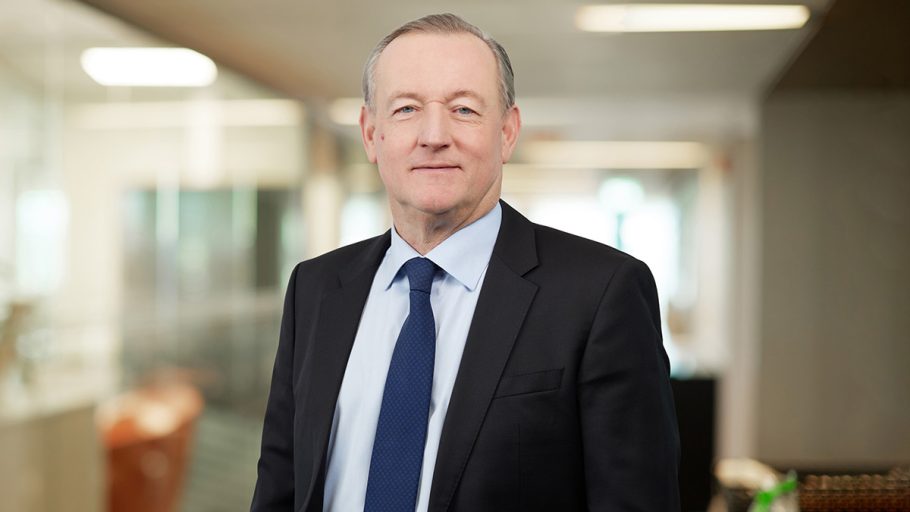Gisle M. Eckhoff is a seasoned executive with over thirty years of experience in the information technology and data center industry. He has served as Head of Bulk Data Centers and Executive Vice President at Bulk Infrastructure Group since September 2021.
Eckhoff has held various leadership positions in the technology sector that have provided him with deep insights into the evolving needs of data processing. His commitment to creating a sustainable digital future has been unwavering and has made him a key figure in the industry. Before joining Bulk Data Centers, he served as the CEO of Stack Infrastructure (then DigiPlex), one of the largest data center operators in the Nordics.
Pioneering Data Processing in the Nordics from Kristiansand and Beyond
In today’s digital age, data centers are the unsung heroes of the technological world, powering the backbone of our online existence. They play a pivotal role in the functioning of businesses, cloud services, and even our daily lives by ensuring the information we need is accessible at our fingertips.
With the increase in data-driven industry associated with the cloud, and as new applications for AI, the Metaverse, and high-end gaming become mainstream, data storage and processing are set to grow significantly. Given electrification and digitization are crucial to a net-zero future, where this data is transferred and processed has never been more important. For digitization to provide real long-term value, technology-driven change must be economically and environmentally sustainable.
Eckhoff has been at the forefront of both this rapidly growing industry and its green practices. With a vision for sustainable, efficient, and reliable data processing, he is leading the charge in the Nordics.
Data Processing in the Nordics
The Nordics have gained prominence as a hotspot for data center development. The region offers several advantages that makes it an ideal location for data processing facilities, including cool climate, political stability, and access to renewable energy sources.
The region’s weather system plays a pivotal role in reducing the energy required for cooling data centers. Traditional data centers in warmer regions necessitate extensive cooling systems, which consume a significant amount of electricity. In contrast, data centers in the Nordics can take advantage of natural cooling, which results in substantial energy savings.
The Nordics are also known for their commitment to renewable energy sources, such as hydroelectric power, wind energy, and geothermal energy. This abundance of green energy makes it possible to power data centers with a minimal carbon footprint. In addition, political stability in the Nordics creates a secure environment for businesses and investors. The rule of law, strong regulatory frameworks, and a commitment to environmental responsibility provide a solid foundation for the data center industry’s growth.
Eckhoff’s emphasis on sustainability aligns perfectly with this regional advantage and has allowed him and Bulk to capitalize on these existing geopolitical strengths and attract both new clients and new builds into the Nordics.
Why Kristiansand?
Kristiansand, a picturesque coastal city in southern Norway, stands out as a particularly strategic choice for data center development within the Nordics. Several factors make the hills and mountans north of the city an appealing location for data center infrastructure:
1 Proximity to Renewable Energy Sources: The Kristiansand region is close to an abundance of renewable energy sources. This proximity ensures that data centers in the area have access to clean and reliable energy, which reduces their carbon footprint.
2 Cool Climate: The region’s location in the southern part of Norway still benefits from a relatively cool climate, which is advantageous for data center operations. Lower temperatures mean less energy is needed for cooling, which contributes to energy efficiency and reduced operating costs.
3 Robust Connectivity: Kristiansand boasts excellent connectivity, including access to subsea fiber optic cables. This level of connectivity is crucial for data centers, as it ensures fast and reliable data transmission.
4 Sustainability Initiatives: Kristiansand shares Bulk’s vision for sustainable data centers. The city’s commitment to eco-friendly practices and green technologies aligns well with Bulk Data Centers’ mission to reduce the environmental impact of data processing.
Championing Sustainability
Eckhoff has consistently advocated for the importance of eco-friendly data centers and their crucial role in achieving net-zero climate targets. His strategic leadership has helped Bulk Data Centers take a strong international position in this space and establish a reputation for reliability, sustainability, and innovation.
He is more than just a thought leader: He is someone who works to turn those ideas into tangible actions, and he has been pivotal in driving sustainable data processing solutions.
With the rapid digitization of our world, it is companies like Bulk that will pave the way for eco-friendly, efficient, and reliable data processing facilities to ensure a greener digital future for all.
Eckhoff has held various leadership positions in the technology sector that have provided him with deep insights into the evolving needs of data processing. His commitment to creating a sustainable digital future has been unwavering and has made him a key figure in the industry. Before joining Bulk Data Centers, he served as the CEO of STACK Infrastructure (then DigiPlex), one of the largest data center operators in the Nordics. “Sustainability is no longer a buzzword, but an essential requirement in our industry. As we continue to rely on digital infrastructure, it’s our responsibility to ensure that this reliance is ecofriendly and efficient. Data centers can be a driving force in meeting net-zero climate targets, and I’m proud to be part of this transformation.”



